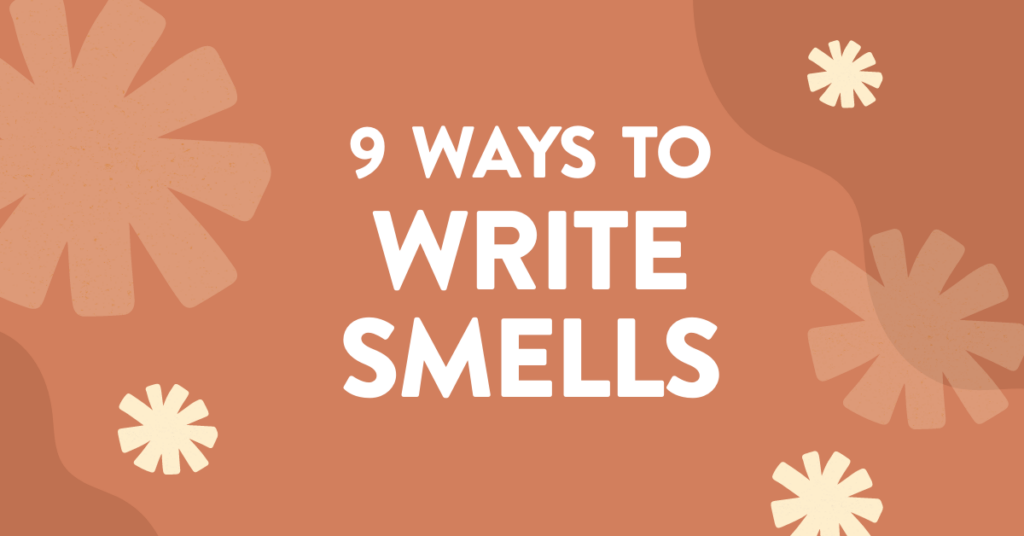
Smell is the best sense to use in your writing.
Yes: it’s better than sound, better than sight, better than touch.
There’s something about smell that bypasses all of the normal roadblocks in our brain and goes straight to memory and animal instincts.
It’s primitive.
It’s elemental.
If you want to really immerse a reader in the world of your book and make them forget everything else, use smell.
The writers below use smell in fantastic ways. For each one, I’ll show you how they’re using scent in their fiction, and also show you how to copy their techniques for your own writing.
1. Characterize through Scents
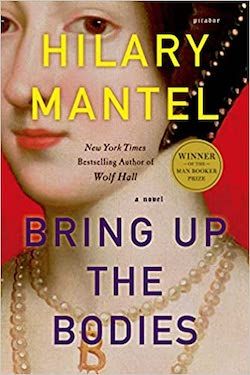
In Hilary Mantel’s novel “Bring up the Bodies,” she contrasts two characters by associating one with hideous smells and the other with a delightful smell. The shock of pairing the two together work quite well:
She is jaundiced, and there is an invalid fug in the room – the faint animal scent of the furs, a vegetal stench of undrained cooking water, and the sour reek from a bowl with which a girl hurries away: containing, he suspects, the evacuated contents of the dowager’s stomach … I could have brought her a lemon in my saddlebag, he thinks.
The bedridden person is associated with all the gross smells:
- animal scent of furs
- vegetal stench of cooking water
- reek of vomit
But to create a sharp contrast, Mantel associates our visitor with the bright, happy citrus smell of a lemon.
Mantel uses smell to help us get a feel for these characters: one has more of a sadder outlook on life, and the other more optimistic.
2. Create Layers of Smells
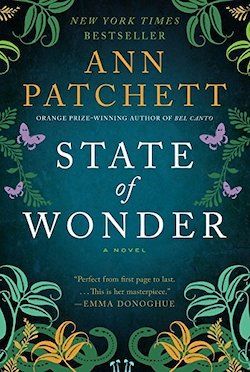
Ann Patchett, in “State of Wonder,” teaches writers that we don’t have to focus on a single smell.
Through a complex mixture of a bunch of smells, we get a sense of a place:
There were layers upon layers of scents inside the hammock – the smell of her own sweat which brought up trace amounts of soap and shampoo; the smell of the hammock itself which was both mildewed and sunbaked with a slight hint of rope; the smell of the boat, gasoline and oil; and the smell of the world outside the boat, the river water and the great factory of leaves pumping oxygen into the atmosphere, the tireless photosynthesis of plants turning sunlight into energy, not that photosynthesis had an odor. Marina inhaled deeply and the scene of the air relaxed her. Brought together, all those disparate elements turned into something wholly pleasant. She wouldn’t have thought that would be the case.
Just count the number of scents in this passage:
- sweat
- hammock
- boat/gasoline/oil
- river water
It’s quite a mixture that gives us a panoramic vision of this place. A 360 degree scent-tour.
I like that the narrator expects these smells to be unpleasant, but there’s a nice reversal at the end of the paragraph: actually, she loves these smells quite a lot!
3. Create Disgust
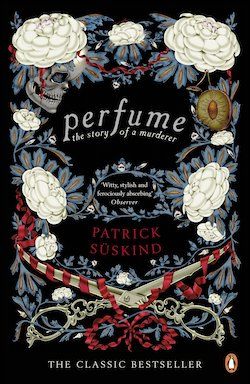
One of the best things you can do in your writing is create a reaction in your reader.
If they react in any way, it means your book is affecting them. It means they aren’t bored.
One way to get a strong reaction from your reader is to make them feel disgusted.
Often, when writers think about scents and smells, they think of the happy, wonderful smells, but in Patrick Suskind’s “Perfume,” he focuses on the revolting smells, and it’s quite powerful:
Here, then, on the most putrid spot in the whole kingdom, Jean-Baptiste Grenouille was born on July 17, 1738. It was one of the hottest days of the year. The heat lay leaden upon the graveyard, squeezing its putrefying vapor, a blend of rotting melon and the fetid odor of burnt animal horn, out into the nearby alleys. When the labor pains began, Grenouille’s mother was standing at a fish stall in the rue aux Fers, scaling whiting that she had just gutted. The fish, ostensibly taken that very morning from the Seine, already stank so vilely that the smell masked the odor of corpses.
Are you grossed out yet? Are you grimacing?
We have a litany of disgusting odors:
- Decomposing bodies
- Burnt animal horn
- Rotting melon
- Rotten fish
This is a book about someone with a remarkable gift of smell, so it’s perfectly ironic that he’s born into a cess pool of stench.
Ultimately, if you want to get a rise out of your reader, come up with the grossest three or four things you can imagine, and get your protagonist into a situation where they have to smell it.
4. Evoke Life Stages through Smell
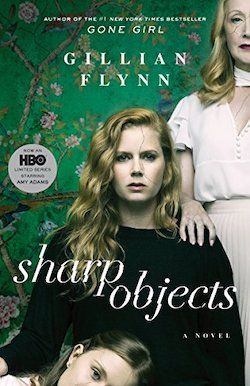
If you want to go into the backstory of your main character, one of the best ways to do that is smell.
Here in Gillian Flynn’s “Sharp Objects,” a main character smells sex in the present moment, and thinks back to how the predominant smell of her childhood was bleach:
I was in college by the time I realized I liked the smell of sex. I came into my friend’s bedroom one morning after a boy darted past me, smiling sideways and tucking his socks into his back pocket. She lazing in bed, splotchy and naked, with one bare leg dangling out from under the sheets. That sweet muddy smell was purely animal, like the deepest corner of a bear’s cave. It was almost foreign to me, this lived-in, overnight odor. My most evocative childhood scent was bleach.
But this smell is also doing characterization: she’s no longer the type of person that likes the chemical cover-up of bleach, and its association with cleanliness.
Now she’s the type of person who loves the dirty, animal scent of sex.
Associating smells with certain stages of your character’s life really helps the reader get a handle on where they came from and where they are now.
5. Unusual Reactions to Smells
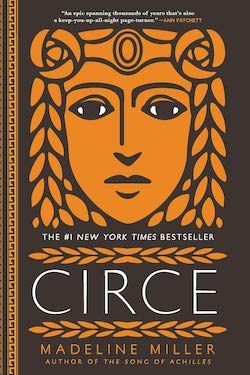
In Madeline Miller’s “Circe,” we have a goddess who gets pregnant. And suddenly, all the smells on her island that used to give her pleasure, start to make her want to vomit:
I would have laughed if I were not so ill. The sour tang of cheese in the kitchen, the salt-stink of seaweed on the breeze, the wormy earth after rain, the sickly roses browning on the bush. All of them brought the bile stinging to my throat.
Cheese, seaweed, fresh earth, and roses: these are pleasant scents. But because she is pregnant and strong smells revolt her, she describes them in unexpected ways:
- Sour Tang
- Salt-Stink
- Wormy earth
- Sickly roses
Writers, don’t always describe the smell of something in a predictable way.
If your character likes the smell of a disgusting thing, or hates the smell of something lovely, that goes a long way in surprising your reader and building this character.
6. Describe Place Through Scents
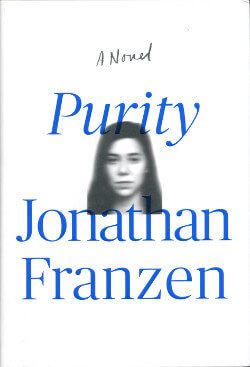
I see a lot of boring descriptions from aspiring writers.
They use lots of details and talk about how everything around their character looked.
But if you’d like to change it up, try describing a place with the limitation of only using a single sense: hearing, for instance, or … smell.
In Jonathan Franzen’s “Purity,” our main character Pip arrives in a new place and describes it solely through the sense of smell:
“But smell had also been heaven. Not outside the airport of Santa Cruz de la Sierra, where the wafts of cow shit from adjacent pastures mingled with the smellable inefficiencies of engines banned from California long before Pip was born; not in the Land Cruiser sure-handedly piloted by a taciturn Bolivian, Pedro, through diesel particulates on the city’s ring boulevards; not along the Cochabamba highway, where every half kilometer another brutally effective speed bump gave Pip a chance to smell fruit rotting and things dying and be approached by the sellers of oranges and friend things who’d install the speed bumps in the first place … but when the road, after plunging through dry forest and through cooler woods half cleared for coffee plantings, finally bottomed out along a stream leading into a little valley more beautiful than any place Pip could have imagined: then the heaven had commenced. Two scents at once, distinct like layers of cooler and warmer water in a lake — some instantly flowering tropical tree’s perfume, a complex lawn-smell from a pasture that goats were grazing — flooded through her open window.”
The commute from the airport is described by:
- The smell of cow manure and ancient engines
- Diesel
- Rotting fruit and dying things
And then the smells transition from ugly smells into glorious smells: tree perfume and lawns.
That way the smells aren’t a list, but more of a journey, and the reader feels like they’re leaving one place and reaching a new one.
Also, I like that all the smells in this passage are a mixture of machines and nature (animals/plants). It’s a perfect encapsulation of a third world country (and I’ve been to Bolivia — I know!).
7. Create Mystery with Smells

In “The Virgin Suicides” by Jeffrey Eugenides, the entire book is a mystery: why do the five girls of a religiously conservative family all commit suicide?
So at the end of the book, after the family has moved out, the boys of the town are confronted with a strange smell. And this smell is somehow an answer to the mystery of why the girls killed themselves, but it’s also exceptionally mysterious in itself:
It was Uncle Tucker, too, who first detected the smell we could never identify. One morning, as Bonnie came out to the dirt mound, she left the front door open, and Uncle Tucker became aware of an odor unlike any other he had ever encountered. At first he thought it was merely an intensification of Bonnie’s wet-bird aroma, but it persisted even after she returned inside, and when we woke up, we smelled it, too. For even as the house began to fall apart, casting out whiffs of rotten wood and soggy carpet, this other smell began wafting from the Lisbons’, invading our dreams and making us wash our hands over and over again. The smell was so thick it seemed liquid, and stepping into its current felt like being sprayed. We tried to locate its source, looking for dead squirrels in the yard or a bag of fertilizer, but the smell contained too much syrup to be death itself. The smell was definitely on the side of life, and reminded David Black of a fancy mushroom salad he’d eaten on a trip with his parents to New York.
“It’s the smell of trapped beaver,” Paul Baldino said, sagely, and we didn’t know enough to disagree, but we found it hard to imagine such an aroma issuing from the ventricles of love. The smell was partly bad breath, cheese, milk, tongue film, but also the singed smell of drilled teeth. It was the kind of bad breath you get used to the closer you go in, until you can’t really notice because it’s your own breath, too. Over the years, of course, the open mouths of women have blown into our faces ingredients of that original smell, and occasionally, poised over unfamiliar bedsheets, in the dark of that night’s betrayal or blind date, we’ve greedily welcomed any new particular reek because of its partial connection to the fumes that began blowing from the Lisbon house shortly after it was closed up, and never really stopped. Right now, if we concentrate, we can smell it still. It found us in our beds, and on the playground as we played Kill the Man with the Ball; it came down the stairs of the Karafilises’ so that Old Mrs. Karafilis dreamed she was back in Bursa cooking grape leaves. It reached us even over the stink of Joe Barton’s grandfather’s cigar, as he showed us the photo album of his Navy days, explaining that the plump women in petticoats were only his cousins. Strangely enough, even though the smell was overpowering, we didn’t once think of holding our breaths, or, as a last resort, breathing through our mouths, and after the first few days we sucked in the aroma like mother’s milk.
These are the important bits of information in that passage:
- The smell is too syrupy to be death
- The smell is like sex (trapped beaver)
- The smell is the embodiment of sexual desire
- The boys of the town ended up liking the smell
So what can we learn from this passage?
It’s okay to have smells be metaphorical. Don’t limit your writing to the smell of meat or with the smell of goats. This is the smell of sexual desire.
This smells symbolizes memory. The family has left town, but the boys of the town cannot forget them. They keep on smelling them in their abandoned house. That’s because these girls who committed suicide haunt the boys of the town — they won’t be forgotten.
It’s okay to have extended smells. Most writers will bring up a smell and then move on to something else in the next part of the sentence. Eugenides really dwells with this smell for quite a long time — almost 500 words!
8. Contrast Your Smells
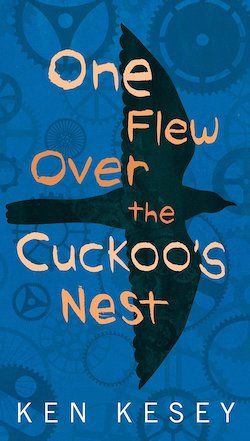
It’s always a good idea to contrast two types of smells.
One that’s enjoyable, one that’s horrible. Or one that has good connotations/memories, and one with terrible connotations/memories.
Here in Ken Kesey’s “One Flew Over the Cuckoo’s Nest,” we see a sharp contrast between ugly smells and healthy ones, with Jack Nicholson’s character McMurphy representing the healthy work:
“Sweeping the dorm soon’s it’s empty, I’m after dust mice under his bed when I get a smell of something that makes me realize for the first time since I been in the hospital that the big dorm full of beds, sleeps forty grown men, has always been sticky with a thousand other smells – smells of germicide, zinc ointment, and foot powder, smell of piss and sour old-man manure, of Pablum and eyewash, of musty shorts and socks musty even when they’re fresh back from the laundry, the stiff odor of starch in the linen, the acid stench of morning mouths, the banana smell of machine oil, and sometimes the smell of singed hair – but never before now, before he came in, the man smell of dust and dirt from the open fields, and sweat, and work.”
What a list that is!
13 smells, most of them a little unpleasant, and then the healthy smell of dust and dirt and sweat and work.
Just figure out whether you want to end on an happy note, with a good smell, or end on a sad note with a hideous smell.
9. Emotional Impact
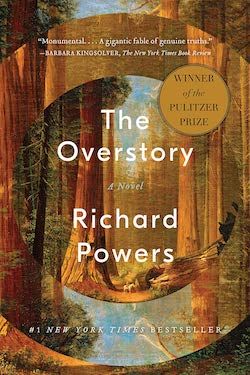
Smells have strong emotional impacts, and you should be calling attention to that.
Don’t just describe what something smells like: tell the reader what impact that has on your character.
Check out how Richard Powers handles the smell of a tree in “The Overstory”:
“And in a few steps, she’s outside. The smell is on her before she reaches the trees—the scent of resin and wide western places. The clean smell of her childhood’s only untouched days. The music of the trees, too, tuning the wind. She remembers. Her nose slips into one of those dark fissures between the flat terra-cotta plates. She falls into the smell, a devastating whiff of two hundred million years ago. She can’t imagine what such perfume was ever meant to do. But it does something to her now. Mind control. It’s neither vanilla nor turpentine, but replete with highlights of each. A shot of spiritual butterscotch. A sprig of pineapple incense. It smells like nothing but itself, pungent and sublime. She breathes in, eyes closed, the tree’s real name.”
This is a smell that makes her remember her childhood. A mixture of vanilla and turpentine that makes her feel like she knows this tree, like she’s having a spiritual encounter with it.
This passages goes far beyond mere description and really gets into the philosophy of what a tree smell is, and its purpose, and how it affects this character.
Bonus Smells:
Donna Tartt, “The Goldfinch” Nostalgic smells.
“More than anything I was struck by the smell — for the plastic, pool-liner odor of masking tape had grown overwhelming from being shut up in such a small space, an emotionally evocative odor I hadn’t remembered or thought of in years, a distinct polyvinyl reek that threw me straight back to childhood and my bedroom back in Vegas: chemicals and new carpet, falling asleep and waking up every morning with the painting taped behind my headboard and the same adhesive smell in my nostrils.”
Ngugi wa Thiongo’o “Wizard of the Crow” The stench of a corrupted soul.
“I can’t quite explain it, but the smell was stronger than that of rotting garbage, a rancid belch, or a ripe fart. Sometimes when I am walking the streets I can detect it from among all other scents in the air and often I come across people and buildings that have it about them more often and more strongly than others. But by the same token I also come across people whose fresh smell seems to drive the foulness away. There are times when the foul and the fresh appear to struggle for the right of passage into my nostrils, like evil and good spirits fighting for the domination of the soul.
“But then Constable Arigaigai Gathere arrives. The whole house stunk during his entire stay. And even after he left, the heavy stench remained. That is what propelled me into a cleansing frenzy.”
Still, no matter what he did, the stench would not go away. Maybe a dead rat was rotting somewhere in the house, so he searched under the bed, the chairs, everywhere, turning things over, but to no avail. Tired and frustrated, he sat by the table in the living room. Suddenly he knew the source of the foulness: the police officer’s money. KamltT immediately put all the notes in a plastic bag, put the bag into an empty cocoa can, and closed the lid. He dug a hole outside and buried the can.
“The smell grew faint but was still in the air,” he told Nyawlra. “But when you entered the house it disappeared altogether, replaced by the fresh scent of flowers.”
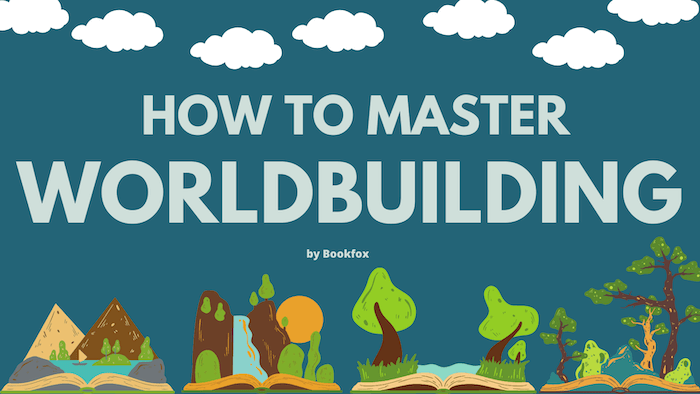


5 comments
Thank you for the post. I learned a lot. Never thought about including smells in the ways presented here. I am looking forward to implementing these in my writings.
Well, thanks for this, but, from the excerpts I would be quite put off of reading those books! In that way, I suppose, you could say the sections about scent were quite compelling, like watching a train wreck, but not effective at making a happy reader! Or perhaps I am too scent-sensitive!
Yeah, it really depends on what type of book you’re writing and what audience you’re shooting for.
But in general, I would say getting a rise out of readers is essential — making them long for the smell of a cookie or recoil from the smell of manure.
Both can be good writing.
This was a great article! Obviously I’ve encountered the description of smells while reading but never thought to incorporate them in my writing with so much intention. Thank you for dissecting this for us!
I write romance novels, and scent is very important in making the reader feel how sexy the hero is. When describing him, especially in Regency romances, the heroine will often comment on the “warm, rich scent of old leather and whiskey”, or “the faint aroma of sandalwood and soap”. I find it interesting that even the word “smell” is often avoided; smells are bad, aromas and scents are pleasant.